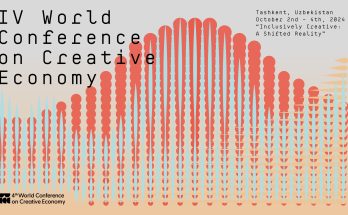At an age when most young men are moving up the career and success ladder, Indian- origin economist Raj Chetty has already become an icon in the world of economics. At 33, he has been conferred the prestigious John Bates Clark Medal by the American Economic Association for his pioneering work in education, tax policy, unemployment and other social insurance, making him the first Indian to receive this medal. The honour has surprised few, who already know him as one of the best economists of his generation.
“He has established himself in a few short years as arguably the best applied microeconomist of his generation,” says the American Economic Association. Speaking to India Writes (www.indiawrites.org), Gurcharan Das, an eminent Indian author and commentator, says Chetty is following in the big league of outstanding economists from India, which includes Amartya Sen and Jagdish Bhagwati.
It’s little surprise that in 2008 The Economist had listed the Delhi-born professor as one of the top young economists in the world. Chetty’s main focus areas have been education, retirement savings and equality of opportunity. He is considered a ‘pioneer’ in using large data sets in tax returns and education records in his research. In fact, it was his work in education that found a mention in US President Barack Obama’s State of the Union address last year. Chetty’s research had focused on how high value-added teachers can boost the long run earnings of their kindergarten students.
What sets his methods apart from the others is his use of real-world experiments to challenge traditional assumptions of economics. It’s this creative way of using data to understand how the economy works that has endeared Chetty to not just his students and colleagues but to policy makers and economists worldwide. Economist Betsey Stevenson from University of Michigan tweeted immediately after the honour was announced, “You can’t teach public economics today without making your students think you have an obsession with Raj Chetty. He’s dominated the field.”
His extensive work in the domain of public economics has catapulted it into an exciting field, hitherto a low profile area of study. Das, the author of best-selling books, including India Grows at Night and The Difficulty of Being Good: On the Subtle Art of Dharma, believes that Chetty has brought “economic rigour to three areas of public policy –education, retirement savings and equality of opportunity – producing new insights into individual behavior.” For Das his most interesting findings “relate to primary education and the pivotal role of one inspiring teacher”. “This is a sobering finding for India where one in four teachers is absent in a government primary school and one in four present is found not to be teaching,” he says.
The only son of immigrant parents, Chetty moved to the United States at the age of nine from New Delhi. He completed high school at University School in Milwaukee before heading to Harvard for college and doctorate. Coming from a family of academicians – his father is an economist at Boston University, mother is a researcher and pediatric pulmonologist while two older sisters are professors – it was inevitable that he would follow in their footsteps. But little would they have known that he would surpass them all and set new international benchmarks in the area of economic research.
Economics was his first love, even though he briefly flirted with the idea of doing “something in biomedical science when in high school”. But soon enough he discovered he really liked “economics and the idea of applying mathematical rigour to important social problems”. This passion for the subject and his clarity in understanding it put him on the path to success.
At the young age of 23, he became an assistant professor of economics at the University of Berkeley and a tenured professor at 27. And at 29, he became one of the youngest professors of economics at his alma mater Harvard University, where he still teaches and is director of the Lab for Economic Applications and Policy. It’s either co-incidence or sheer providence that at the age of 17, when he was still an undergrad at Harvard, he became research assistant to public economist Martin Feldstein, who was a Clark medal winner in 1977.
The mentor was obviously proud when he heard the news. He is all praise for his protégé: “Raj is a brilliant economist who is leading the field of public economics. He has done remarkable empirical studies that have raised important new ideas about how people respond to taxes and fiscal incentives.”
Honours have become a way of life for the young economist who won the MacArthur Foundation’s ‘Genius award’ last year and also received the 2012 Mahalanobis Memorial Medal of the Indian Econometric Society.
The Clark medal is also known as Baby Nobel because every third Clark winner has gone on to win the Nobel. Some of the past winners are Paul Krugman, Paul Samuelson, Joseph Stiglitz, Steven Levitt and Larry Summers. The Clark medal doesn’t include any monetary award and is being awarded annually since 2010.
For this genius, the next milestone should definitely be the Nobel. Don’t be surprised if he makes it.
Author Profile
Latest entries
 Books / PoetrySeptember 4, 2013Sunetra Gupta: Juggling science and writing, playing music with words
Books / PoetrySeptember 4, 2013Sunetra Gupta: Juggling science and writing, playing music with words In ConversationAugust 14, 2013At home in India, leaving America and living with Hemingway
In ConversationAugust 14, 2013At home in India, leaving America and living with Hemingway CultureJuly 17, 2013London calling: Celebrating the genius of Satyajit Ray
CultureJuly 17, 2013London calling: Celebrating the genius of Satyajit Ray Books / PoetryJuly 8, 2013Hosseini’s muse sings, again: A sweeping saga of love and betrayal
Books / PoetryJuly 8, 2013Hosseini’s muse sings, again: A sweeping saga of love and betrayal







